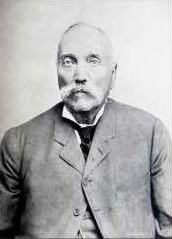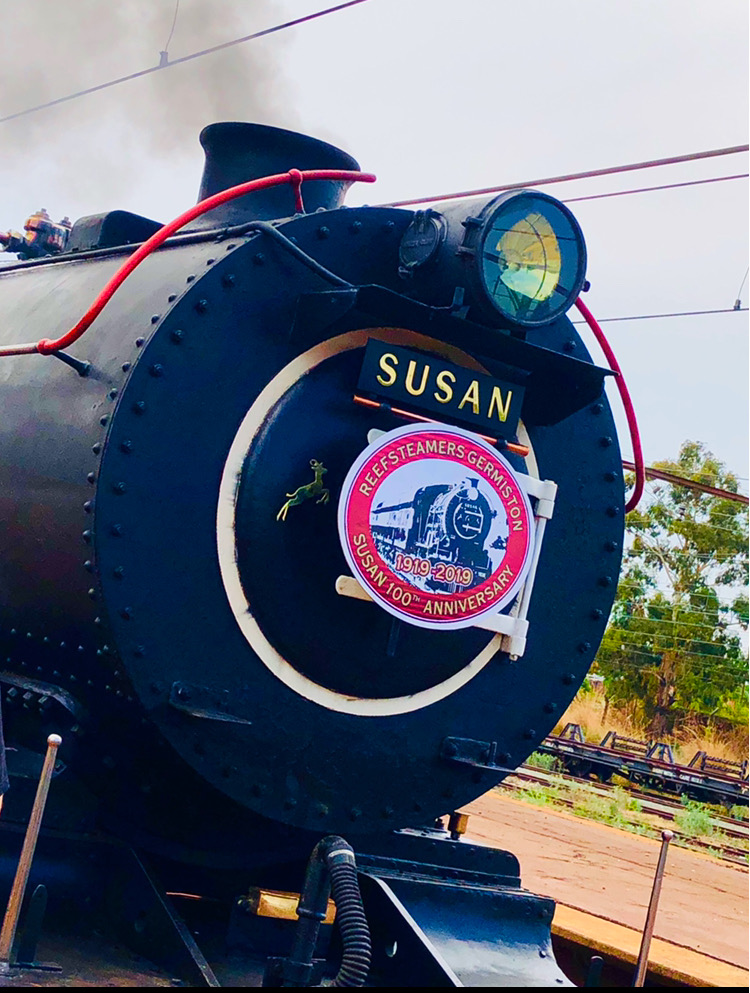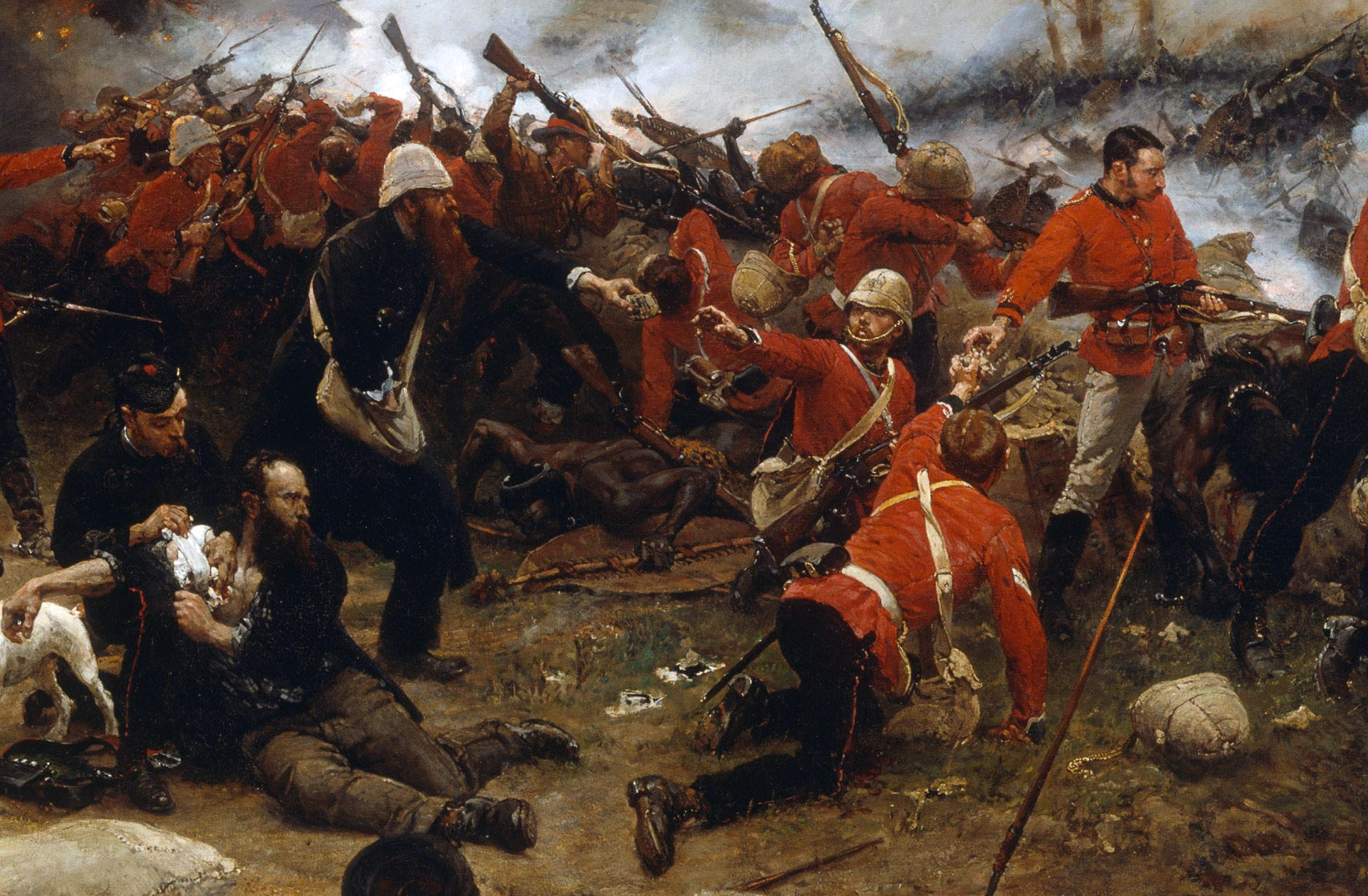|
Piet Joubert
Petrus Jacobus Joubert (20 January 1831 – 28 March 1900), better known as Piet Joubert, was Commandant-General of the South African Republic from 1880 to 1900. He also served as Vice-President to Paul Kruger from 1881 - 1883. He served in First Boer War, Second Boer War, and the Malaboch War. Early life Joubert was born in the district of Prince Albert, British Cape Colony, a descendant of a French Huguenot who fled to South Africa soon after the revocation of the Edict of Nantes by Louis XIV. Left an orphan at an early age, Joubert migrated to the Transvaal, where he settled in the Wakkerstroom district near Laing's Nek and the north-east corner of the Colony of Natal. There he not only farmed with great success, but turned his attention to the study of the law. Political career The esteem in which his shrewdness in both farming and legal affairs was held led to his election to the Volksraad as member for Wakkerstroom early in the sixties, Marthinus Pretorius being then ... [...More Info...] [...Related Items...] OR: [Wikipedia] [Google] [Baidu] |
President Of The South African Republic ...
This is a list of State Presidents of the South African Republic (Before 1866 nl, President van de Zuid-Afrikaansche Republiek and after 1866 nl, Staatspresident der Zuid-Afrikaansche Republiek). The country was referred as the ''Transvaal Republic'' by the British. List Last election See also *State President of the Orange Free State * State Secretary of the South African Republic *State Attorney of the South African Republic References External links Archontology.org: South African Republic (Transvaal): Heads of State: 1857–1902 {{DEFAULTSORT:State President Of The South African Republic * South African Republic The South African Republic ( nl, Zuid-Afrikaansche Republiek, abbreviated ZAR; af, Suid-Afrikaanse Republiek), also known as the Transvaal Republic, was an independent Boer Republic in Southern Africa which existed from 1852 to 1902, when i ... [...More Info...] [...Related Items...] OR: [Wikipedia] [Google] [Baidu] |
Second Boer War
The Second Boer War ( af, Tweede Vryheidsoorlog, , 11 October 189931 May 1902), also known as the Boer War, the Anglo–Boer War, or the South African War, was a conflict fought between the British Empire and the two Boer Republics (the South African Republic and the Orange Free State) over the Empire's influence in Southern Africa from 1899 to 1902. Following the discovery of gold deposits in the Boer republics, there was a large influx of "foreigners", mostly British from the Cape Colony. They were not permitted to have a vote, and were regarded as "unwelcome visitors", invaders, and they protested to the British authorities in the Cape. Negotiations failed and, in the opening stages of the war, the Boers launched successful attacks against British outposts before being pushed back by imperial reinforcements. Though the British swiftly occupied the Boer republics, numerous Boers refused to accept defeat and engaged in guerrilla warfare. Eventually, British scorched earth po ... [...More Info...] [...Related Items...] OR: [Wikipedia] [Google] [Baidu] |
1893 Transvaal Presidential Election
Presidential elections were held in Transvaal in 1893. The result was a victory for Paul Kruger Stephanus Johannes Paulus Kruger (; 10 October 1825 – 14 July 1904) was a South African politician. He was one of the dominant political and military figures in 19th-century South Africa, and President of the South African Republic (o ..., although there were concerns that agents of Kruger had manipulated the electoral roll. Results References {{Boer and South African colonial elections Elections in Transvaal 1893 elections in Africa 1893 in the South African Republic 1890s in Transvaal ... [...More Info...] [...Related Items...] OR: [Wikipedia] [Google] [Baidu] |
1888 Transvaal Presidential Election
Presidential elections were held in Transvaal in 1888.Encyclopædia Britannica 1911, p931 The result was a victory for , who defeated Piet Joubert
Petrus Jacobus Joubert (20 January 1831 – 28 March 1900), better known as Piet Joubert, was Commandant-General of the South African Republic from 1880 to 1900. He also served as Vice-President to Paul Kruger from 1881 - 1883. He served in Fir ... by a wide margin.Francis Hug ...
[...More Info...] [...Related Items...] OR: [Wikipedia] [Google] [Baidu] |
1883 Transvaal Presidential Election
Presidential elections were held in Transvaal on 16 April 1883.Paul Kruger is elected President South African History Online The election was held after the country's triumvarate leadership, consisting of , and Marthinus Wessel Pretorius
Marthinus Wessel Pretorius (17 September 1819 – 19 May 1901) was a South African political leader. An Afrikaner (or "Boer"), ...
[...More Info...] [...Related Items...] OR: [Wikipedia] [Google] [Baidu] |
Pretoria Convention
The Pretoria Convention was the peace treaty that ended the First Boer War (16 December 1880 to 23 March 1881) between the Transvaal Boers and Great Britain. The treaty was signed in Pretoria on 3 August 1881, but was subject to ratification by the Volksraad within 3 months from the date of signature. The Volksraad first raised objections to a number of the clauses of the treaty, but did eventually ratify the version signed in Pretoria, after Britain refused any further concessions or changes to the treaty. British preparation work for the Pretoria Convention of 1881 was done at Newcastle, KwaZulu-Natal. Under this agreement, the South African Republic regained self-government under nominal British suzerainty. This convention was superseded in 1884 by the London Convention. Background By the time of the Battle of Majuba, the governments of the South African Republic and Britain were in contact, President Brand of the Orange Free State acting as intermediary. See also * ... [...More Info...] [...Related Items...] OR: [Wikipedia] [Google] [Baidu] |
Heidelberg, Gauteng
Heidelberg is a town with 35,500 inhabitants in the Gauteng province of South Africa at the foot of the Suikerbosrand next to the N3 highway, which connects Johannesburg and Durban. History Heidelberg began in 1862 as a trading station built by a German, Heinrich Julius Ueckermann. A town was laid out around the store and named after Ueckermann's alma mater. In 1866, the District of Heidelberg was created from the eastern portion of the Potchefstroom district with its own ''landdroost'' (magistrate) having been laid out as a churchplace in 1865. Heidelberg is some 50 kilometres south-east of Johannesburg, close to the Mpumalanga border. Just south of the town is the De Hoek toll plaza on the newest section of the N3, which opened in December 2001. Heidelberg sits nestled at the eastern end of the Suikerbosrand Nature Reserve, a large tract of land that is home to Gauteng's highest point, almost 2,000 metres above sea level. Heidelberg has played an important part in South ... [...More Info...] [...Related Items...] OR: [Wikipedia] [Google] [Baidu] |
Attorney-general
In most common law jurisdictions, the attorney general or attorney-general (sometimes abbreviated AG or Atty.-Gen) is the main legal advisor to the government. The plural is attorneys general. In some jurisdictions, attorneys general also have executive responsibility for law enforcement, prosecutions or even responsibility for legal affairs generally. In practice, the extent to which the attorney general personally provides legal advice to the government varies between jurisdictions, and even between individual office-holders within the same jurisdiction, often depending on the level and nature of the office-holder's prior legal experience. Where the attorney general has ministerial responsibility for legal affairs in general (as is the case, for example, with the United States Attorney General or the Attorney-General for Australia, and the respective attorneys general of the states in each country), the ministerial portfolio is largely equivalent to that of a Minister of Justice ... [...More Info...] [...Related Items...] OR: [Wikipedia] [Google] [Baidu] |
Volksraad Of The South African Republic
The ''Volksraad of the South African Republic'' (English: "People's Council" of the South African Republic, Afrikaans: Volksraad van die Zuid-Afrikaansche Republiek) was the parliament of the former South African Republic (ZAR), it existed from 1840 to 1877, and from 1881 to 1902 in part of what is now South Africa. The body ceased to exist after the British Empire's victory in the Second Anglo-Boer War. The ''Volksraad'' sat in session in Ou Raadsaal in Church Square, Pretoria. In 1840, at the beginning of the Natalia Republic, an adjunct ''Volksraad'' was created in Potchefstroom for settlers west of the Drakensberg. The Potchefstroom ''Volksraad'' continued despite the British annexation of the Natalia Republic in 1843. It eventually passed the Thirty-three Articles, the precursor to the 1858 constitution (''Grondwet''), in 1849. In 1858 the ''Grondwet'' permanently established the ''Volksraad'' as the supreme authority of the nation. Initially a unicameral body, the ''Volk ... [...More Info...] [...Related Items...] OR: [Wikipedia] [Google] [Baidu] |
Colony Of Natal
The Colony of Natal was a British colony in south-eastern Africa. It was proclaimed a British colony on 4 May 1843 after the British government had annexed the Boer Republic of Natalia, and on 31 May 1910 combined with three other colonies to form the Union of South Africa, as one of its provinces. It is now the KwaZulu-Natal province of South Africa. It was originally only about half the size of the present province, with the north-eastern boundaries being formed by the Tugela and Buffalo rivers beyond which lay the independent Kingdom of Zululand (''kwaZulu'' in the Zulu language). Fierce conflict with the Zulu population led to the evacuation of Durban, and eventually, the Boers accepted British annexation in 1844 under military pressure. A British governor was appointed to the region and many settlers emigrated from Europe and the Cape Colony. The British established a sugar cane industry in the 1860s. Farm owners had a difficult time attracting Zulu labourers to work o ... [...More Info...] [...Related Items...] OR: [Wikipedia] [Google] [Baidu] |
Laing's Nek
Laing's Nek, or Lang's Nek is a pass through the Drakensberg mountain range, South Africa, immediately north of Majuba, at at an elevation of 5400 to . It is the lowest part of a ridge which slopes from Majuba to the Buffalo River, and before the opening of the railway in 1891 the road over the nek was the main artery of communication between Durban and Pretoria. The railway crosses the pass via a . long tunnel. History There are two possible explanations for its name. It could be named after Henry Laing, owner of a farm at is foot or William Timothy Lang who bought a farm in 1874 at its base. When the Boers rose in revolt in December 1880 they occupied Laing's Nek to oppose the entry of British reinforcements into the Transvaal. On 28 January 1881 a small British force endeavoured to drive the Boers from the pass, but was forced to retire after the Battle of Laing's Nek The Battle of Laing's Nek was a major battle fought at Laing's Nek during the First Boer War on 28 Jan ... [...More Info...] [...Related Items...] OR: [Wikipedia] [Google] [Baidu] |
Louis XIV Of France
, house = Bourbon , father = Louis XIII , mother = Anne of Austria , birth_date = , birth_place = Château de Saint-Germain-en-Laye, Saint-Germain-en-Laye, France , death_date = , death_place = Palace of Versailles, Versailles, France , burial_date = 9 September 1715 , burial_place = Basilica of Saint-Denis , religion = Catholicism ( Gallican Rite) , signature = Louis XIV Signature.svg Louis XIV (Louis Dieudonné; 5 September 16381 September 1715), also known as Louis the Great () or the Sun King (), was King of France from 14 May 1643 until his death in 1715. His reign of 72 years and 110 days is the longest of any sovereign in history whose date is verifiable. Although Louis XIV's France was emblematic of the age of absolutism in Europe, the King surrounded himself with a variety of significant political, military, and cultural figures, such as Bossuet, Colbert, Le Brun, Le Nôtre, Lully, Mazarin, Molière, Racine, ... [...More Info...] [...Related Items...] OR: [Wikipedia] [Google] [Baidu] |





